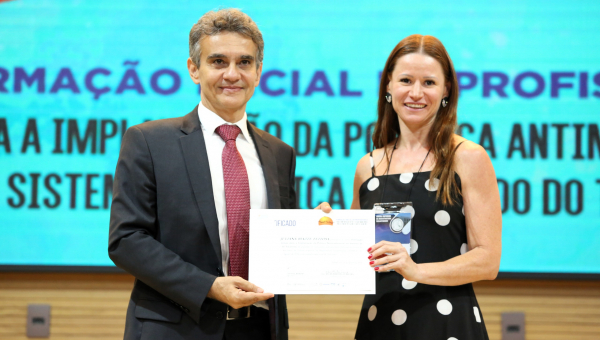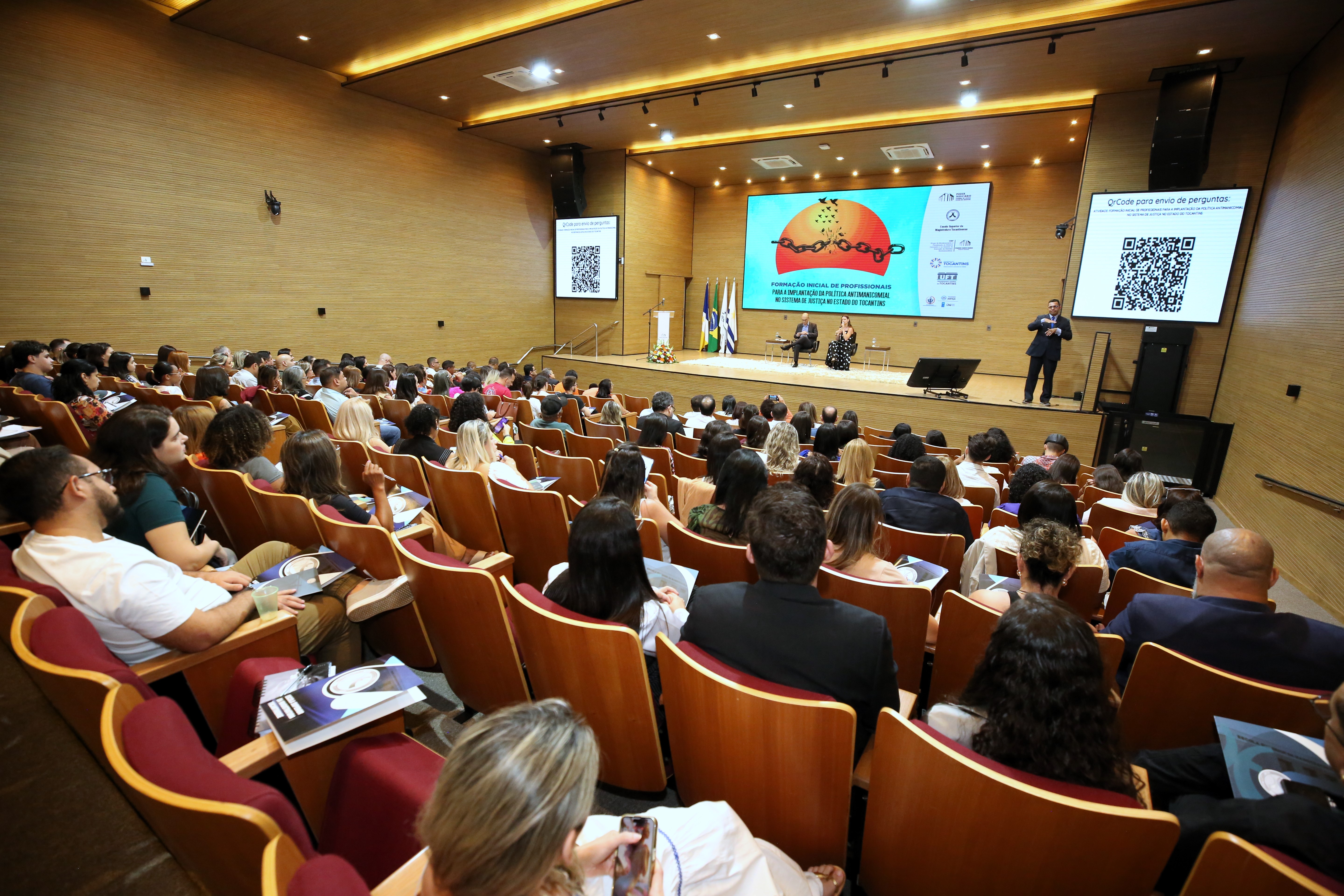
With more than nine hundred registered, the Initial Training of Professionals for the Implementation of the Anti-Asylum Policy in the Justice System of the State of Tocantins began on Wednesday morning (August 28th), in the auditorium of the Court of Justice of the State of Tocantins (TJTO). The event, which will last for three days (August 28th, 29th and 30th August), aims to train professionals of the justice system, municipal managers and workers of the social and prison care network, aiming at the implementation of the anti-asylum policy and qualified care for people in conflict with the law and who have mental disorders.
Opening
At the opening of the event, Judge Allan Martins Ferreira, coordinator of the State Inter-institutional Committee for Monitoring of the Anti-Asylum Policy of the State of Tocantins (Ceimpa) and member of the Monitoring and Supervision Group of the Prison System (GMF), emphasized the importance of training, highlighting that this is only the first of many initiatives focused on the theme. "We are committed that this is not the first or the last, but the first of many," said the magistrate. 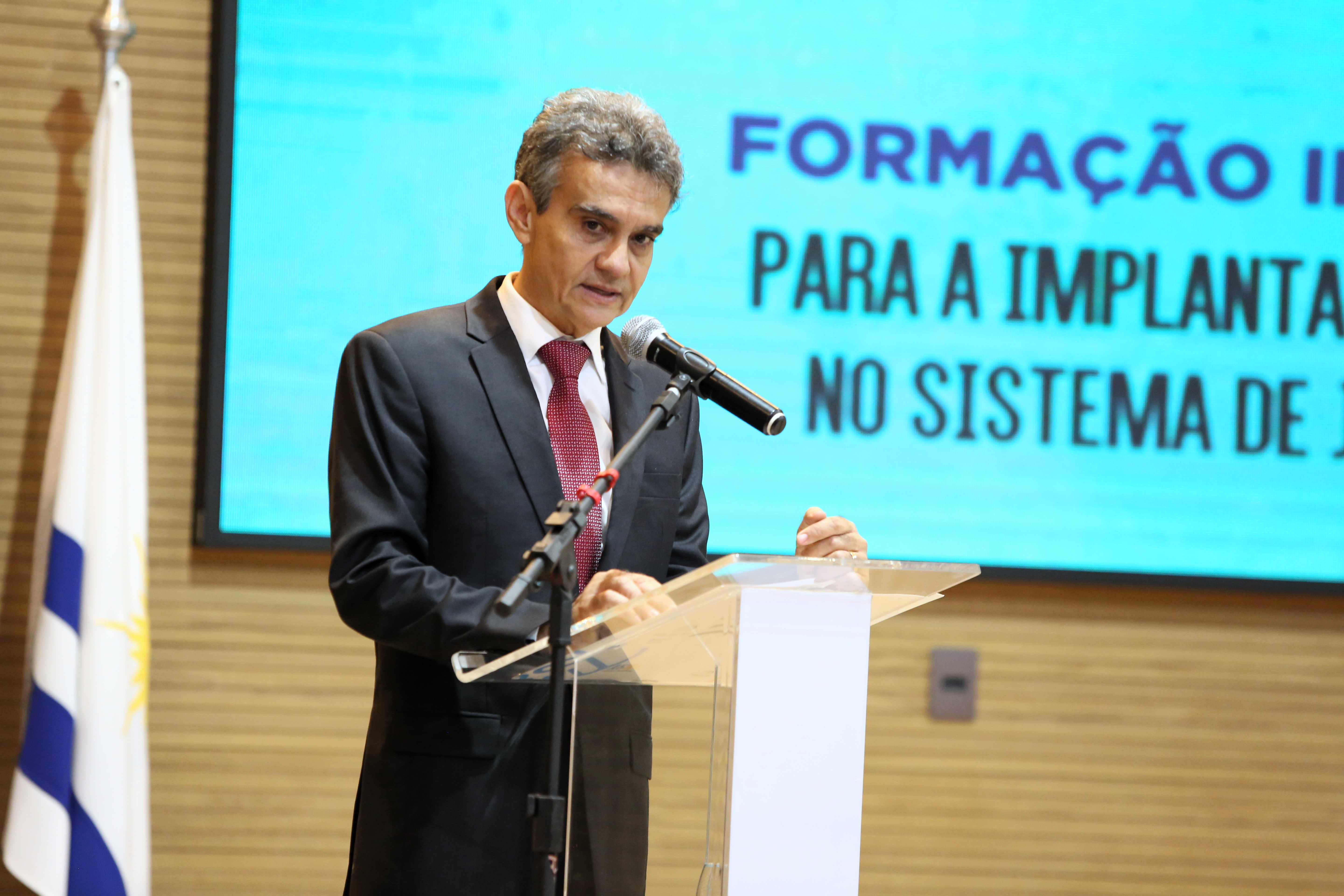
"I want to express my joy of this moment, which will be part of the history of building human rights of a population that has always been neglected by criminal law and, I would say, by psychiatry. We are facing a few steps to consolidate a civilizational leap in our penal system", the Judge added.
Professor Juliana Biazze Feitosa, from the Psychology course at the Federal University of the State of Tocantins (UFT), highlighted the mark that the event represents for the State. "This is not only a training process, but it means the beginning of a process of deinstitutionalization of people who are fulfilling security measures," she said, pointing out that the action aims to ensure care and freedom for these people.
The Justice Pedro Nelson de Miranda Coutinho, supervisor of the Monitoring and Supervision Group of the Prison System (GMF), brought a critical reflection on the role of the State in relation to psychiatric assistance. 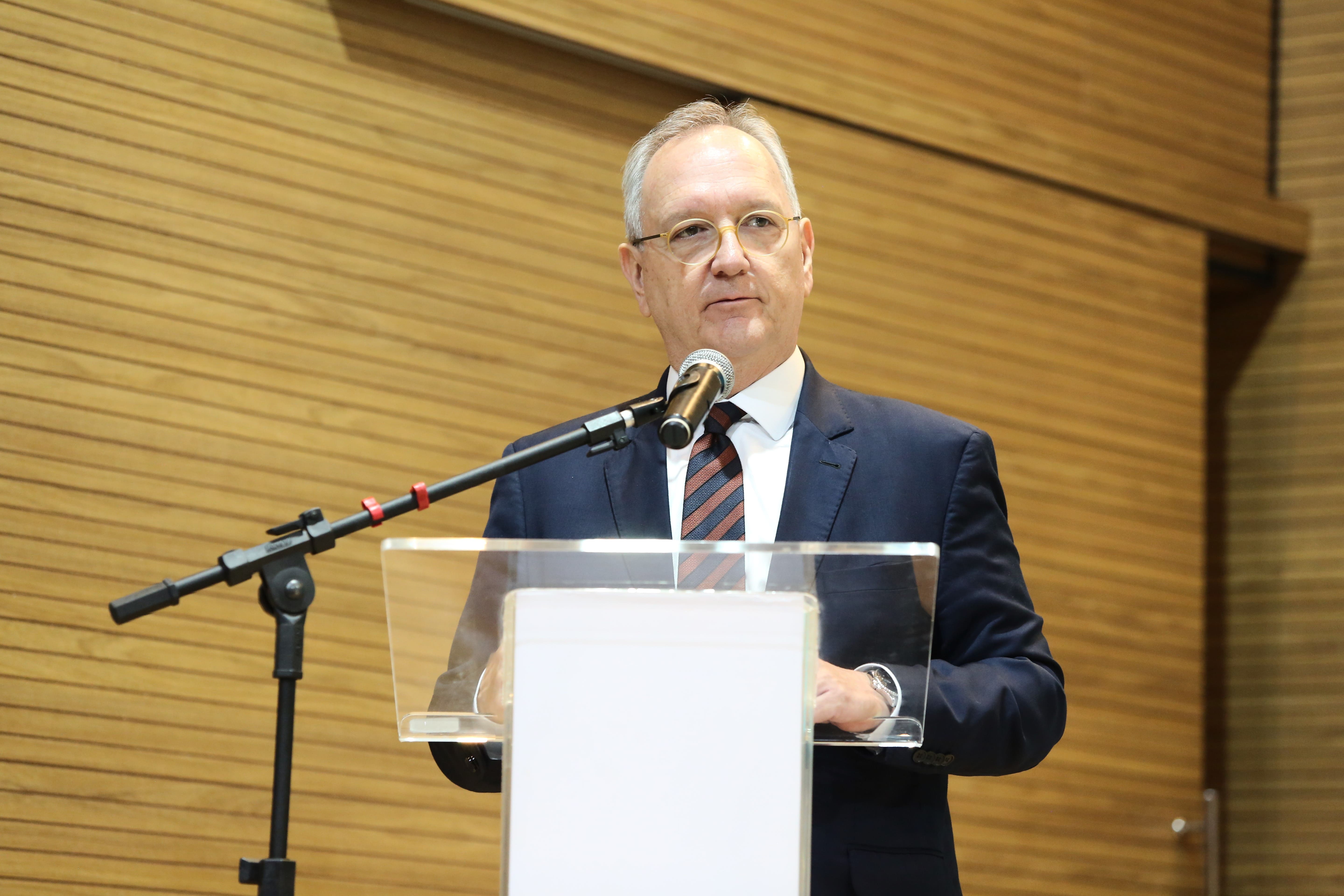
"We have to look inside and see that this is only happening by the purest lack of State. Where there is no State, there is no citizenship", he said, citing Plato when defending the need for diversity and assistance for people in situations of psychiatric vulnerability.
Opening the course officially, Justice Maysa Vendramini Rosal, Chief Justice, reinforced the importance of training for the justice system. "The training is an important step in preparing for the implementation of the Anti-Asylum Policy in the Justice System of our State," she pointed out. The Chief Justice ended her speech with optimism about the expected results. 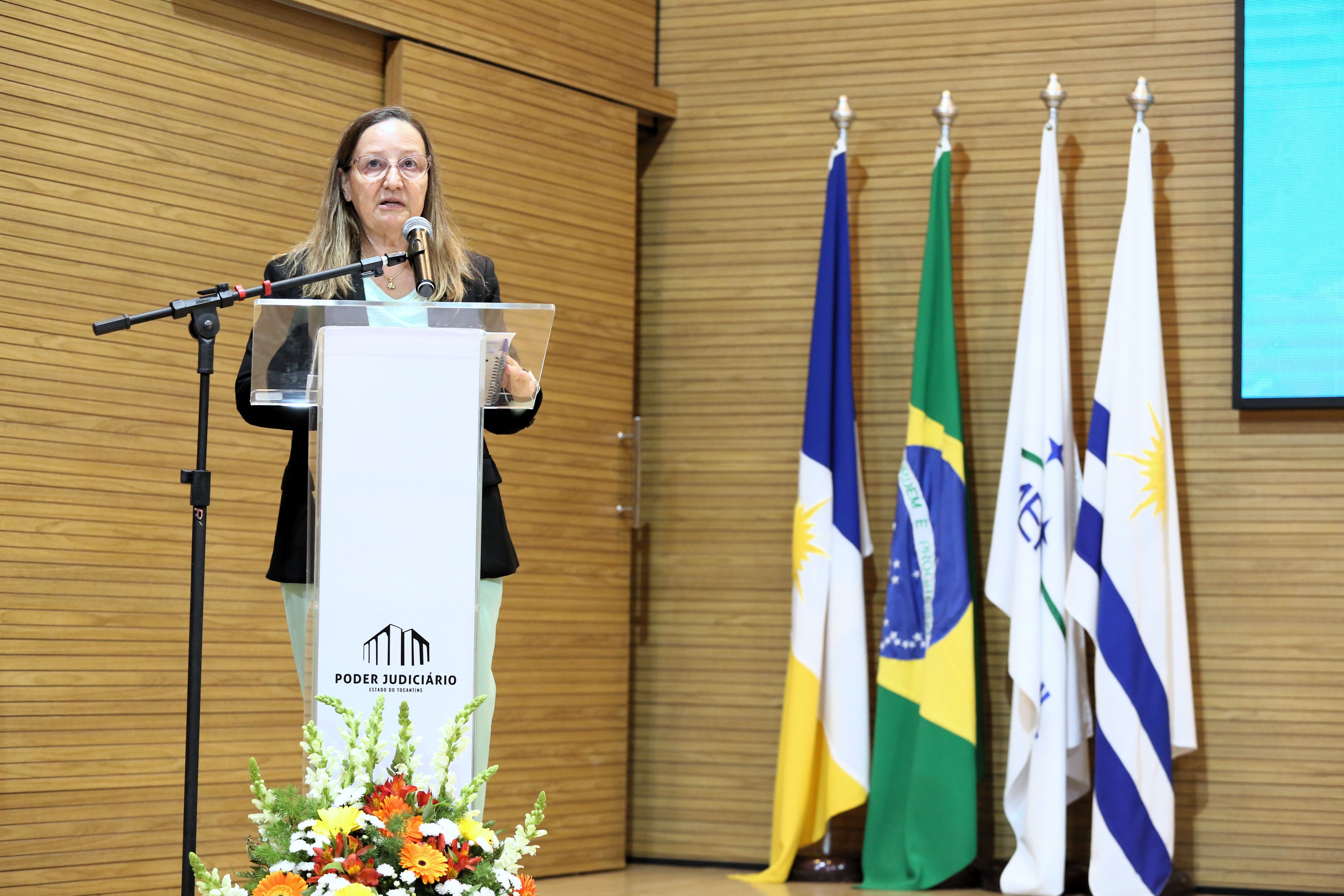
"I am sure that this event will be a great learning and success," she said.
First class
The first class, taught by Professors Marcelo Kimati Dias and Juliana Biazze Feitosa, dealt with "general considerations on psychopathology, criminal inimputability and the role of psychosocial care net work in safety measures".
During the exhibition, aspects were discussed about the foundations of imputability, a legal concept that refers to the situation in which a person cannot be criminally responsible for his acts, ie, cannot be punished for a crime he committed. This happens when, at the time of the crime, the person did not have the ability to understand what he was doing or control his actions due to factors such as mental illness, incomplete mental development or involuntary intoxication.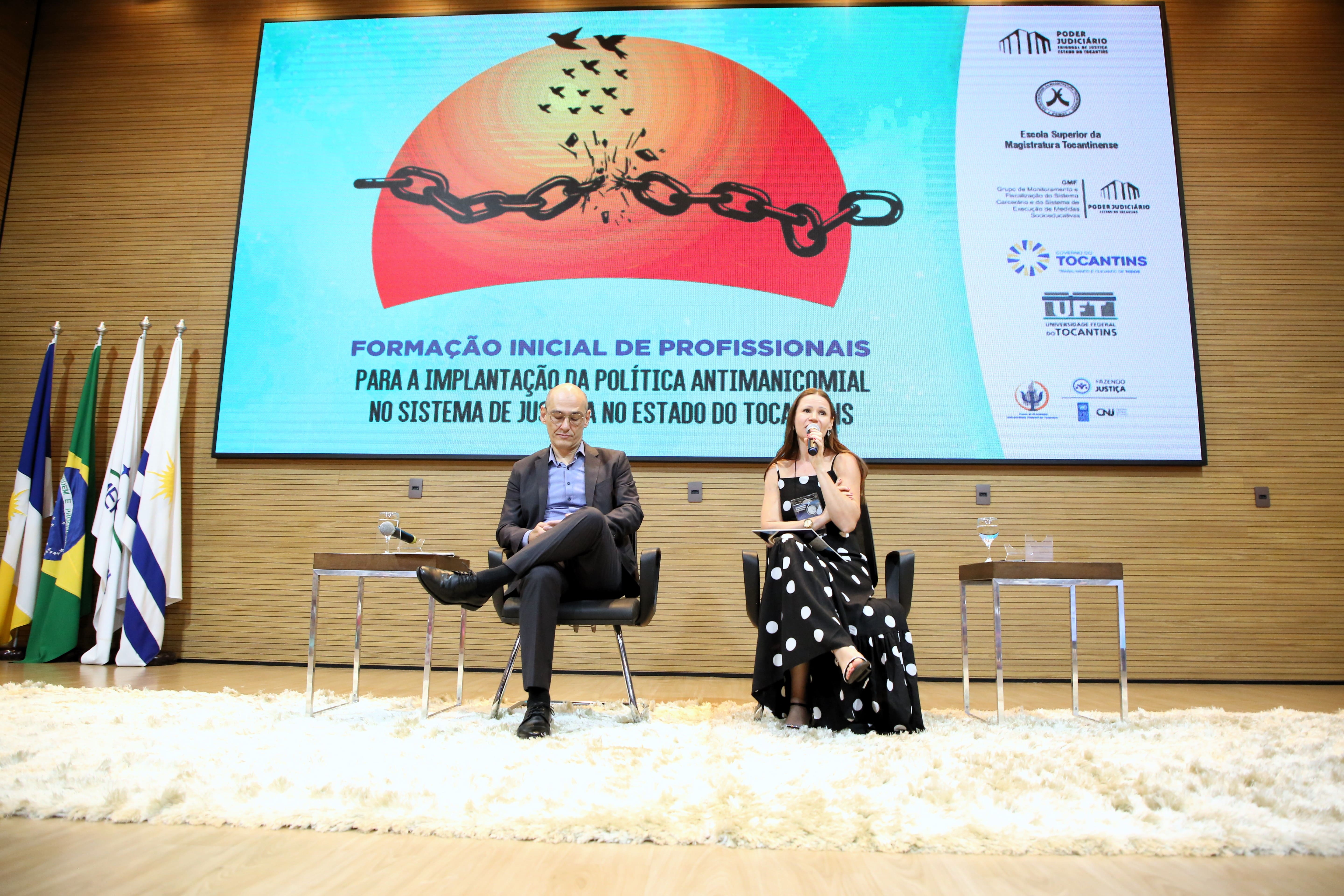
For example, a person with schizophrenia who, during a psychotic break, commits a crime can be considered unaccountable because he had no full control over his actions at the time. This does not mean that she will be left without treatment or measures, but that she will be treated in a way more appropriate to her mental condition, rather than simply being punished with imprisonment.
Next exhibitions
In the afternoon, the programming continues with classes that will deepen the discussion on the impact of hospitalizations in judicial lunatic asylums. The theme on "Hospitalization in the 'judicial asylum': health treatment or intensification of the illness?" will be presented by Professor Daniel Navarro Sonim and the speaker Walter Farias, who will discuss the challenges and consequences of the treatment given to interns in these institutions.
Also will be held the lecture on "The person in conflict with the law and the anti-asylum struggle from the perspective of the PNAISP", taught by Professor Carlos Alberto Pereira de Oliveira, with Professor Helenilva Custódio de Melo as co-lecturer.
Over the three days, the event aims to bring out deep reflections and at the same time offer concrete tools for the application of the Anti-Asylum Policy in the State of Tocantins. The initiative is also aligned with the guidelines established by the Law no 10.216, of 2001, and the Resolution no 487 of the National Council of Justice, of 2023, which strengthen the protection of the rights of people with mental disorders in the justice system.
The training, result of the technical work of the Professional and Interdisciplinary Master's Degree in Judicial Provision and Human Rights (PPGPJDH/ ESMAT-UFT), is coordinated by Judge Allan Martins Ferreira in partnership with the Superior School of the Judges of the State of Tocantins (Esmat) and with the Monitoring and Supervision Group of the Prison System and Execution of Socio-educational Measures (GMF).




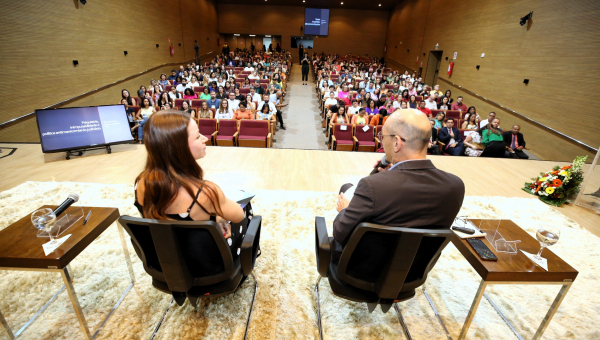
_thumbnail.jpeg)
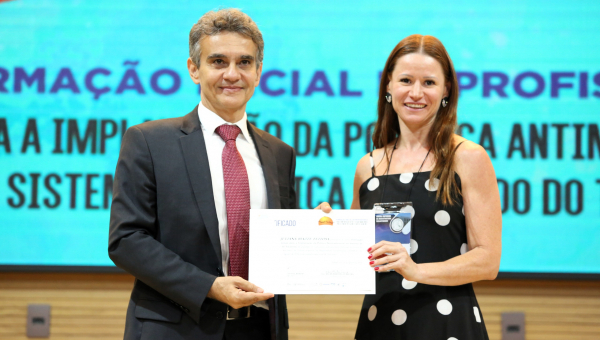
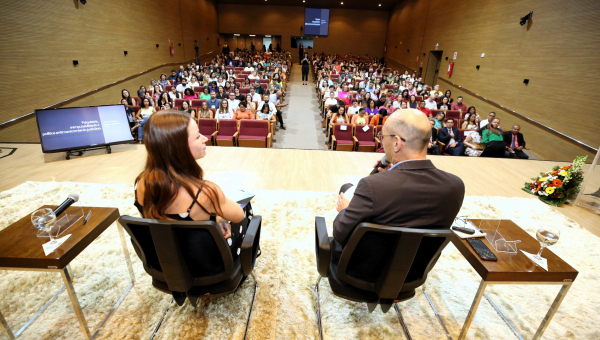
.jpeg)
